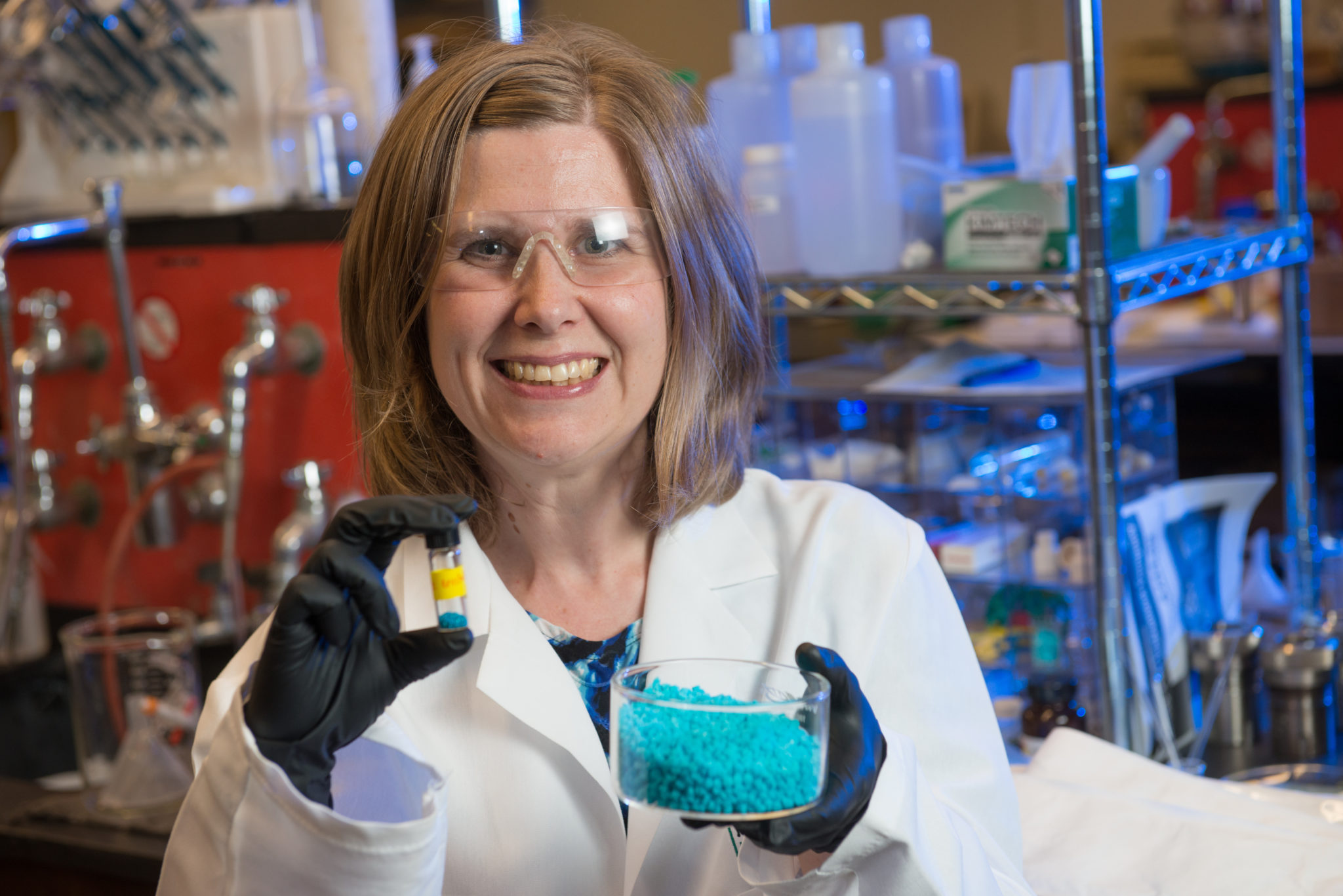
Associate Professor Melissa Reynolds, Department of Chemistry and School of Biomedical Engineering.
Biomedical researchers think that in several decades, the No. 1 health care concern in the U.S. will not be cancer or cardiovascular disease – but infection.
This alarming outlook, and new approaches for early detection and effective treatment for bacterial infections, will be the subject of a free public lecture by Melissa Reynolds, associate professor in the Department of Chemistry and a faculty member in the School of Biomedical Engineering. Reynolds, named a Colorado State University Monfort Professor in 2017, will deliver her Monfort Professor Lecture on April 11 at 4 p.m. in 308-310 Lory Student Center.
Reynolds, who also serves as associate dean for research in the College of Natural Sciences, leads a research group that integrates novel chemistries into medical devices for humans. Her lab develops biocompatible materials that show promise for medicinal-chemistry problems, including the body’s tendency to reject foreign materials.
For example, the Reynolds lab has developed a sensor designed as a treatment system to detect the presence of bacteria and release nitric oxide – a potent, naturally-occurring antimicrobial small molecule – to eradicate bacteria. At the same time, the lab aims to create new methods to accurately measure the effectiveness of antimicrobial treatments; determine critical drug dosages needed to achieve high-kill efficiencies; and design better antimicrobial materials for use in medical devices. The lab’s newest materials have resulted in some of the highest performing bacterial-resistant devices to date.
About Monfort Professors
The Monfort Professorship is among CSU’s highest honors. Established in 2002 through a gift from the Monfort Family Foundation, it awards $100,000 over two years to outstanding CSU faculty in support of their research and teaching. Monfort Professors typically deliver Monfort Professor Lectures each spring.